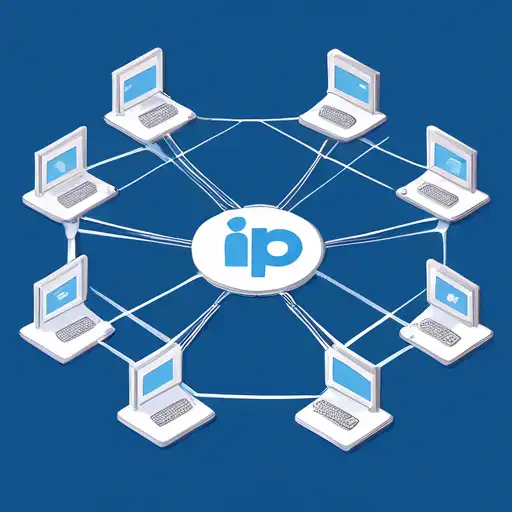Introduction to IP Addresses
In the vast world of networking, understanding IP addresses is fundamental. An IP (Internet Protocol) address is a unique identifier assigned to each device connected to a network. This guide will walk you through the basics of IP addresses, their types, and their importance in networking.
What is an IP Address?
An IP address is a numerical label assigned to each device participating in a computer network that uses the Internet Protocol for communication. It serves two main functions: identifying the host or network interface and providing the location of the host in the network.
Types of IP Addresses
There are two main types of IP addresses: IPv4 and IPv6. IPv4, the most widely used version, consists of four numbers separated by dots (e.g., 192.168.1.1). IPv6, the newer version, was developed to deal with the long-anticipated problem of IPv4 address exhaustion and is represented by eight groups of four hexadecimal digits.
Why Are IP Addresses Important?
IP addresses are crucial for the functioning of the internet. They enable devices to communicate with each other over a network, ensuring that data sent from one device reaches the correct destination. Without IP addresses, the internet as we know it would not exist.
How to Find Your IP Address
Finding your IP address is simple. On a Windows PC, you can use the command prompt and type ipconfig. On a Mac, open the Terminal and type ifconfig. Your IP address will be displayed among the results.
Static vs. Dynamic IP Addresses
IP addresses can be static or dynamic. A static IP address remains constant, while a dynamic IP address can change. Most home networks use dynamic IP addresses assigned by the DHCP (Dynamic Host Configuration Protocol) server.
Securing Your IP Address
Protecting your IP address is essential for maintaining your online privacy and security. Using a VPN (Virtual Private Network) can help mask your IP address, making your online actions virtually untraceable.
Conclusion
Understanding IP addresses is a cornerstone of networking knowledge. Whether you're setting up a home network or pursuing a career in IT, grasping the basics of IP addresses will serve you well. For more networking tips, check out our guide on Networking Basics.
